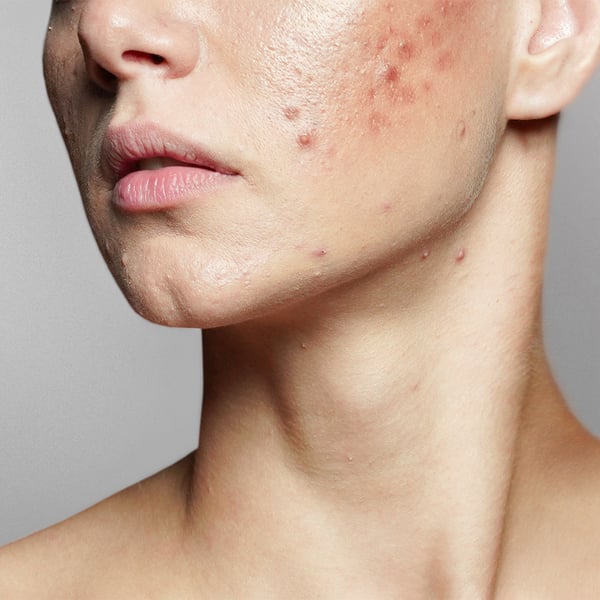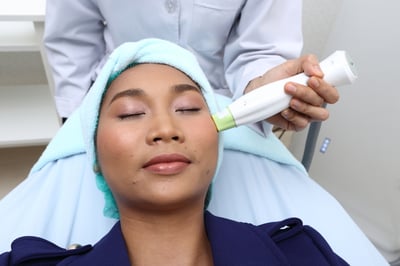
Treating scars is easier than you think. You can minimize the appearance of acne scars, surgical scars, and accidental scars in just a few easy laser treatments, without surgery or downtime.
What is laser scar removal?
Laser scar removal is a non-surgical treatment that uses an FDA-cleared fractional laser for the treatment of scars, ideal for patients seeking to minimize the appearance of acne scars, surgical scars, or accidental scars on the face and body. It’s a fast and easy procedure with minimal to no downtime.
How does laser scar removal work?
According to Dr. Ashley Dietrich, board-certified dermatologist with Forefront Dermatology, “Laser scar removal uses laser light to break down scar tissue and trigger new, healthy tissue to form at the site. This allows the scar to even out in color and texture and blend more naturally into the surrounding skin.”
Laser scar removal is a non-invasive procedure that can take as little as 20 minutes per session. Depending on the severity of your scar, laser scar removal can reduce the appearance of scars to a point where they are barely visible. Results do take time to appear. It can be several weeks to months before results from laser scar removal can be noticeable, although you may see little improvement at first.
Does insurance cover laser scar removal?
Laser treatments are generally not covered by health insurance providers since it is considered a cosmetic treatment and not medically necessary. It is best to contact your health insurance provider to determine if your plan will cover the treatment.
Am I a candidate for laser scar removal treatment?
“Laser therapy is generally a very safe procedure, but there are certain situations in which it isn’t advisable or simply won’t be effective,” noted Dr. Dietrich. Patients with skin conditions like psoriasis, dermatitis, and cystic acne should avoid laser treatment. Additionally, some forms of laser treatments are not recommended for people of color. It is best to consult with your local board-certified dermatologist to determine which laser treatment is best for your skin type and scarring concerns.”
If you decide laser treatment is for you, you will want to make a few lifestyle adjustments leading up to your treatments. If you take acne medication like isotretinoin, your dermatologist may suggest that you stop taking it for six months prior to your laser treatment. You’ll also need to watch out for sun exposure, as laser treatment works best on skin that’s not sunburned or too tan and also makes your skin more sensitive to UV rays.
Are you interested in laser scar removal?
If you have a scar you would like to remove, we recommended contacting your local board-certified dermatologist to have them evaluate your scar and determine the best course of laser treatment. Find a dermatologist near you today.





